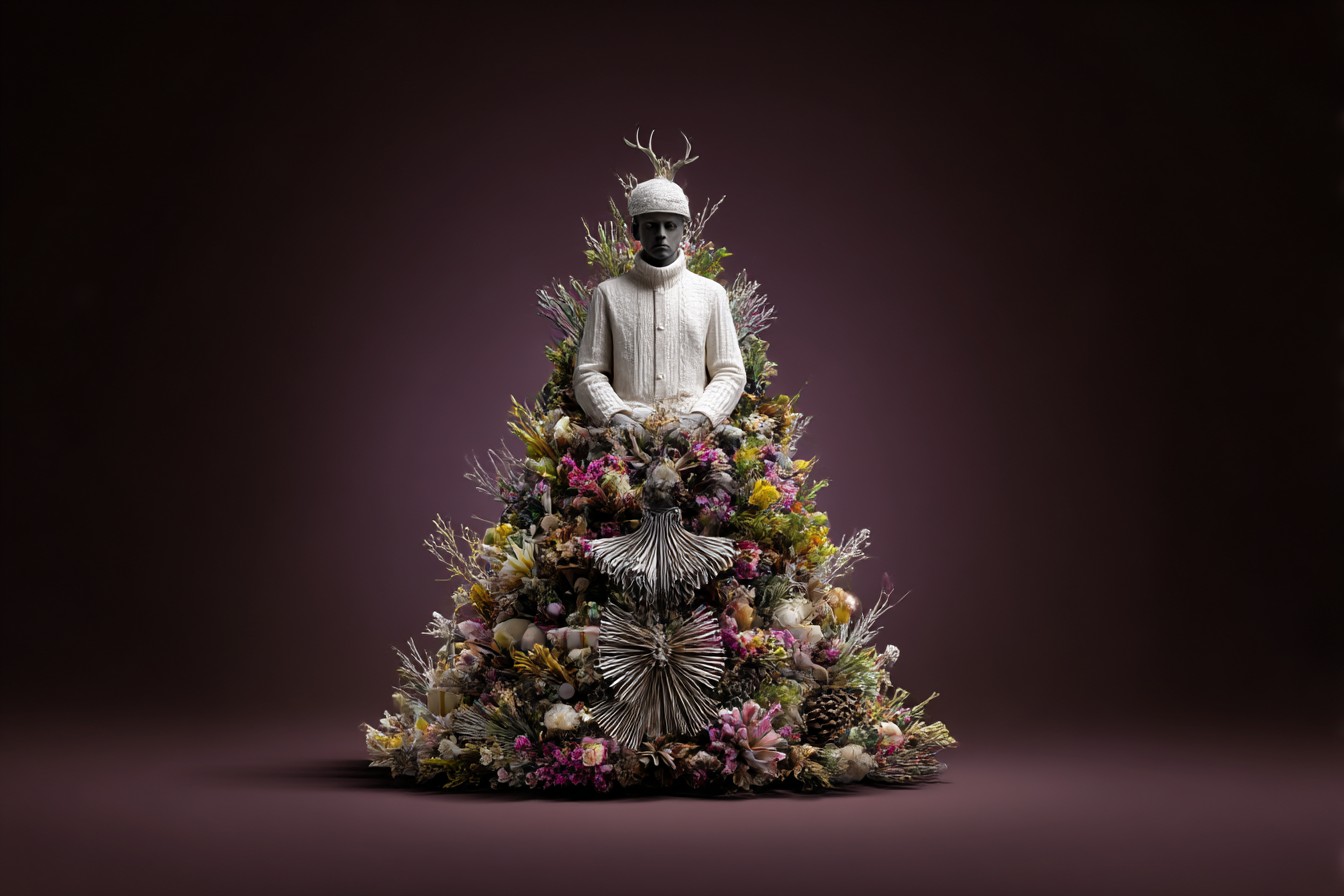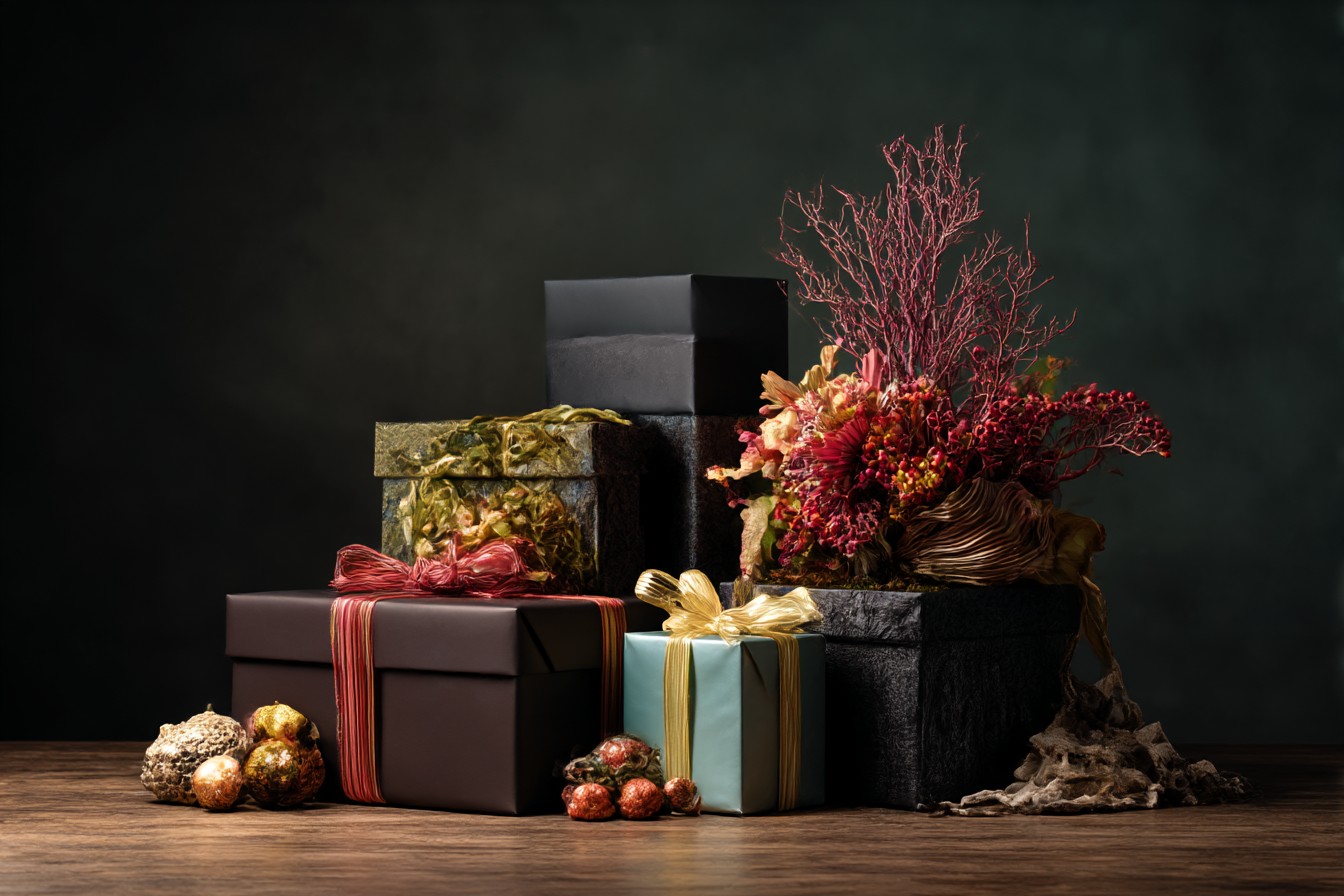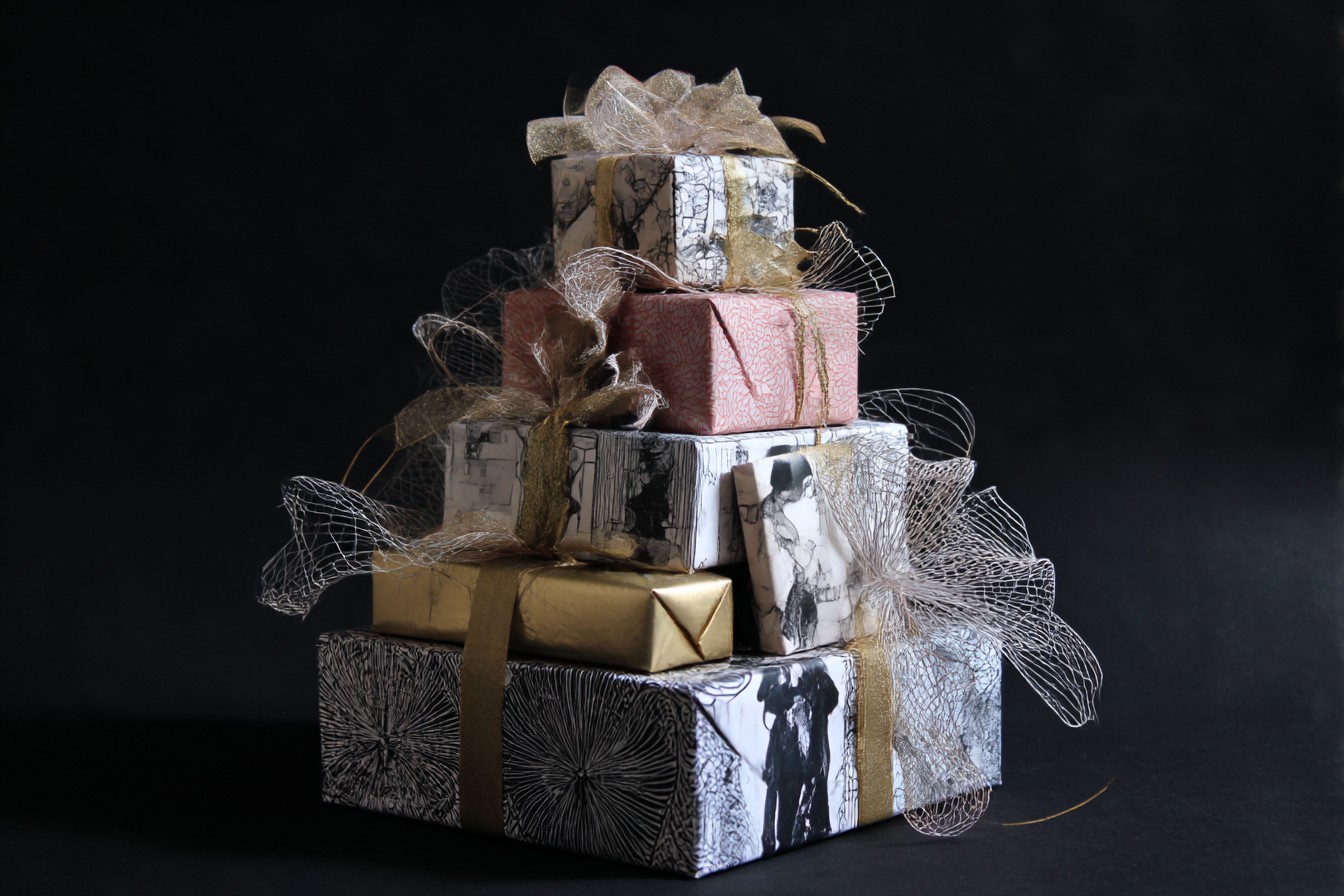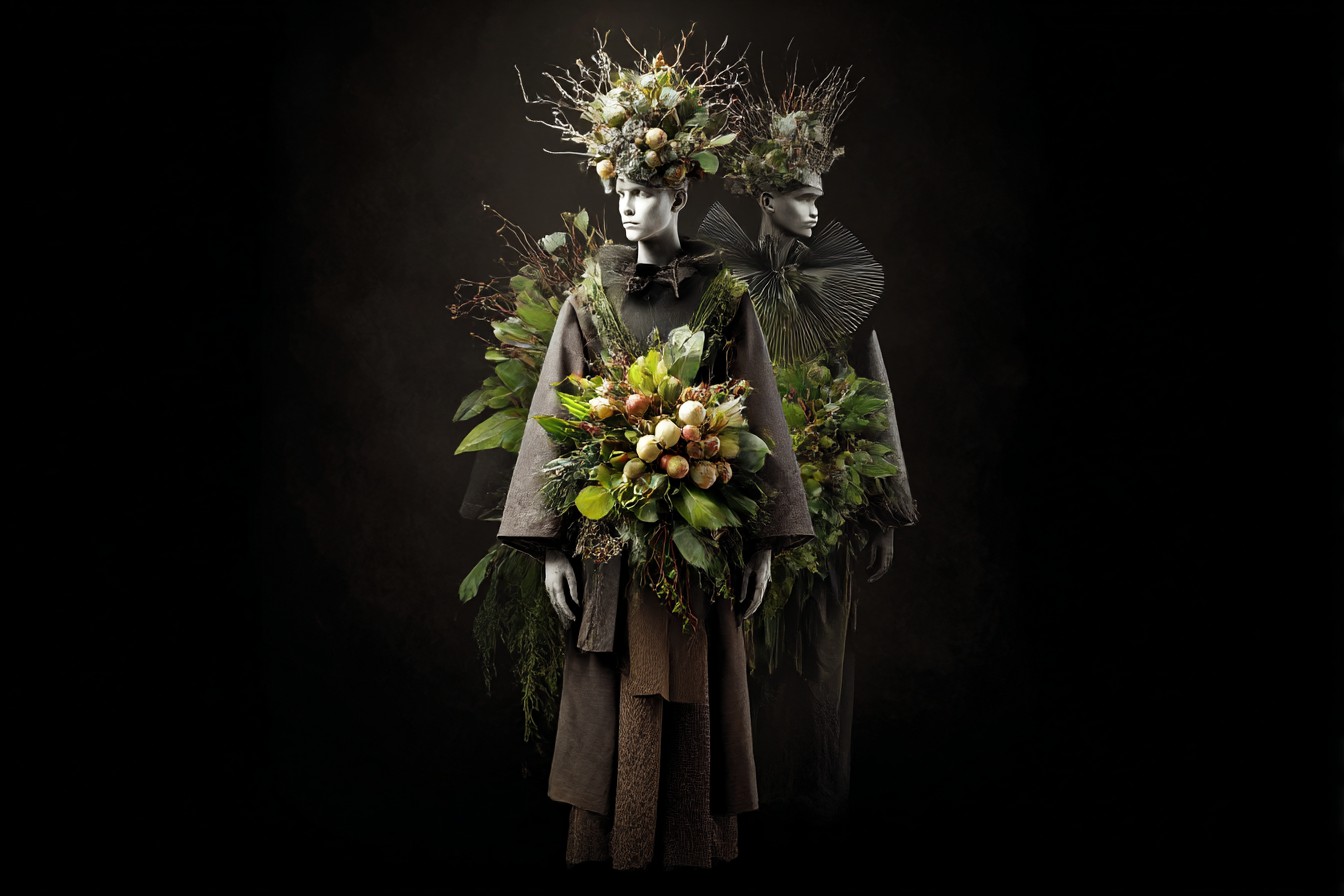I used to be that friend. You know the one—showing up to your birthday dinner with a beautifully wrapped gift and a card so perfectly chosen it makes you feel deeply understood, while simultaneously triggering a wave of guilt because you completely forgot their birthday three months earlier. I was a world-class gift-giver but, ironically, a rather patchy gift-rememberer. My brain, so attuned to cataloguing people’s offhand mentions of things they liked, was rubbish at keeping track of when I was actually supposed to give them these carefully selected presents.
The breaking point came five years ago when I missed my own grandmother’s 80th birthday. Not the celebration—I was physically present at the party, glass of prosecco in hand, watching her blow out the candles. But I had somehow convinced myself that the party was the following weekend, which meant I arrived empty-handed while my cousins presented her with thoughtful gifts. The look of confusion on Gran’s face still makes me cringe. “I thought… I mean, I’ve got your gift, it’s just… I’ll bring it next time,” I stammered, knowing full well I hadn’t bought a thing because in my head, I still had a week to find the perfect present.
That night, I sat on my bedroom floor surrounded by gift wrap from previous occasions (yes, I keep a dedicated gift wrap box sorted by occasion and recipient preferences—I told you I was good at the giving part), and had a proper meltdown. How was it possible that I—obsessive chronicler of gift ideas, keeper of present journals, self-appointed gift consultant to friends and family—could be so utterly disorganized about when these gifts were actually due?
My husband Charlie found me there, tearfully sorting through scraps of ribbon. “This isn’t sustainable,” he said gently. “You’re brilliant at the gifts themselves, but you need a system for the when, not just the what.” He was right. My haphazard approach—scribbling reminders on random bits of paper, trusting my increasingly unreliable memory, setting phone alerts that I’d immediately swipe away while thinking “I’ll deal with that later”—clearly wasn’t working.
That weekend, with Gran’s belated gift finally sorted (a digital photo frame pre-loaded with family photos spanning eight decades, which did eventually earn me forgiveness), I set about creating what I now rather grandly call my Seasonal Gift Reminder System. Five years and zero missed occasions later, I can confirm it’s been relationship-saving.
The system began simply enough. I started with a spreadsheet listing everyone I regularly buy gifts for, their birthdays, and other gift-giving occasions relevant to them specifically. But it quickly became apparent that a simple list wasn’t enough. I needed something more visual, something that would give me a sense of the gift-giving landscape across the entire year.
Enter my colour-coded calendar system. I created a dedicated “Gift Calendar” in my Google calendar, separate from my personal and work ones. Each person in my life was assigned a colour: blue for family, green for close friends, purple for colleagues and professional connections. Then I entered not just their birthdays, but all potential gift-giving occasions: anniversaries, graduations, baby showers, housewarmings, major holidays, thank-you gifts for hospitality, host gifts for dinner parties—anything where a present might be appropriate or expected.
But here’s the crucial bit: I didn’t just mark these occasions on the actual date. I created a three-tiered reminder system. For standard birthdays and smaller occasions, I set reminders for two weeks before (ideal window for finding the perfect gift), one week before (emergency window if I hadn’t sorted it yet), and two days before (last chance for online ordering or emergency local shopping). For major occasions like milestone birthdays or Christmas, the first reminder shifts to a full month ahead, giving me time for more elaborate planning.
Charlie laughed himself silly when he saw me creating this system. “Only you would need a project management approach to being nice to people,” he said. But he’s not laughing now—he’s been the grateful beneficiary of my consistent remembering of his mother’s birthday three years running, saving him from the traditional sons’ last-minute petrol station flowers scramble.
The system evolved further when I realized that not all gift occasions are predictable. Some of the most meaningful gift moments are spontaneous—celebrating a friend’s new job, commiserating a breakup, marking a personal achievement or helping someone through an illness. For these, I created what I call my “Gift Opportunity” section. Every Sunday evening, during my weekly planning, I review recent conversations, social media updates, and upcoming events to identify any potential gift opportunities in the week ahead. These go into a separate list with deadlines I set based on the urgency of the situation.
The final piece of the puzzle was addressing the actual logistics of getting the gifts. A perfectly timed reminder does you no good if you’re stuck with the eternal question: “But what do I get them?” This is where my obsessive gift idea documentation finally found its perfect home. My spreadsheet expanded to include columns for gift ideas (ongoing lists I add to whenever inspiration strikes), past gifts (to avoid repetition and track what was well-received), preferred gift types, and budget ranges for different occasions.
For those people I buy for repeatedly—family, closest friends—I also note their gift “cycles.” I’ve found most people have them. My sister, for instance, appreciates a practical gift followed by something frivolous, followed by an experience. My dad enjoys food gifts but would feel short-changed if he got them two occasions in a row. Tracking these patterns helps me maintain variety while still giving things they genuinely want.
The results have been transformative. Not only do I never miss an occasion now, but the quality of my gifts has actually improved. Because I’m not panic-buying at the last minute, I can be more thoughtful and strategic. I can take advantage of sales, order custom items that require lead time, or coordinate with other gift-givers for more substantial joint presents.
There’s also been an unexpected benefit to this system: it’s created a much more balanced gift-giving pattern across my various relationships. Before, I tended to hyperfocus on whoever’s occasion was immediately looming, sometimes neglecting to plan as carefully for others. Now, with my annual gift landscape visible at a glance, I can see if I’m overinvesting in certain relationships or categories while neglecting others. I’ve become much more conscious of spending similar effort on family and friends, rather than letting the squeakiest wheels get the most thoughtful gifts.
The system also helps with budgeting, which was previously my gift-giving Achilles heel. With everything mapped out, I can see gift-heavy periods coming (November-December is obviously intense, but I also have a bizarre concentration of family birthdays in March). This lets me set aside money accordingly rather than having my monthly budget repeatedly ambushed by gift emergencies.
I’ve refined the approach over the years. One particularly useful addition has been what I call the “Standby Gift Shelf.” This is a small section of our airing cupboard dedicated to a curated selection of high-quality, relatively neutral gifts suitable for unexpected occasions. Beautiful notebooks, good chocolates, nice bottles of wine, luxury hand creams—things that are genuinely lovely but not so personalized that they’d feel obviously repurposed. These are my safety net for truly last-minute situations: sudden dinner invitations, reciprocating an unexpected gift, or those awful moments when someone gets you a Christmas present and you definitely didn’t get them one.
The Standby Shelf operates on a strict rotation system. Whenever I use something from it, it goes on my shopping list to be replaced. I also refresh the entire selection every six months to prevent anything from sitting there so long it feels dated or, worse, gets forgotten and given to the same person twice. (Yes, I did once give my neighbor the exact same fancy tea two Christmases in a row. The look of polite confusion as she said, “Oh, this seems familiar…” still haunts me.)
There’s another element that’s proven crucial: the delegation section. My system now includes a clear record of which occasions my husband is primarily responsible for (his family, his close friends) versus which are mine, plus those we handle jointly. This has eliminated the “I thought you were sorting Mum’s birthday” last-minute arguments that previously cropped up with depressing regularity. Charlie still does the actual shopping for his people—I’m a control freak about gift selection, not completely insufferable—but the reminders come from our shared system.
Some friends have teased me about the elaborateness of this approach. My friend Lisa once referred to it as “gift surveillance” when she spotted my calendar alerts popping up during a coffee date. Another accused me of “taking all the spontaneity out of giving.” But I’d argue the opposite is true. By handling the administrative aspects systematically, I free up my creative energy for the part I actually love—selecting or making meaningful gifts that truly connect with the recipient. The reminders are just scaffolding; the heart of gift-giving remains deeply personal and intuitive.
There’s also an unexpected emotional benefit I hadn’t anticipated. Before the system, I carried around a constant low-level anxiety about potentially forgotten occasions, a nagging sense that I might be overlooking something important. That background stress has completely disappeared. I trust my system implicitly now, which means I can be more present in my relationships rather than half-listening to conversations while mentally cataloguing whether I’ve missed someone’s special day.
I’ve shared adapted versions of this system with friends who struggle with similar issues. My minimalist friend Priya uses a greatly simplified version—just the calendar alerts without my extensive documentation. My tech-averse mother has a physical wall calendar with colored stickers marking gift occasions and countdown numbers she updates weekly. The core principle works regardless of execution style: externalize the remembering process so your brain can focus on the meaningful connection the gift represents.
If you’re reading this thinking it all sounds ridiculously over-engineered, you might be one of those lucky people with an innate sense of timing and social obligation. Good for you, genuinely. But if you’ve ever found yourself making a midnight dash to a 24-hour supermarket for a last-minute birthday card, or sending yet another apologetic “belated happy birthday” text, or wrapping a hastily repurposed scented candle while in the car outside a dinner party—well, perhaps there’s something here worth considering.
The truth is, consistent remembering is its own form of gift. When you never miss an important date, when you acknowledge milestones reliably and thoughtfully, you’re communicating something important: you matter enough to me that I’ve made space for you in my systems and routines. Your special days are important enough to plan for. In a world where attention is increasingly fragmented, that kind of consistent care stands out.
My grandmother, now 85, recently told me that her favorite thing about getting older is “seeing who remembers and who doesn’t.” She wasn’t talking about the gifts themselves—many of which she immediately tries to give back because “at my age I’m getting rid of things, not collecting them, love.” She was talking about the act of being held in someone else’s mind, of having your significant moments acknowledged.
That’s what my slightly obsessive system is really about. Not the perfect gifts, though those are nice too. It’s about making sure the people I care about never have reason to wonder if they matter to me. The spreadsheets and calendar alerts might seem cold and systematic on the surface, but their purpose is deeply human: making sure love and attention are distributed thoughtfully and consistently across all the relationships that matter to me.
And also, you know, making sure I never again show up empty-handed to my grandmother’s birthday party. Some life lessons you only need to learn once.





Leave a Reply